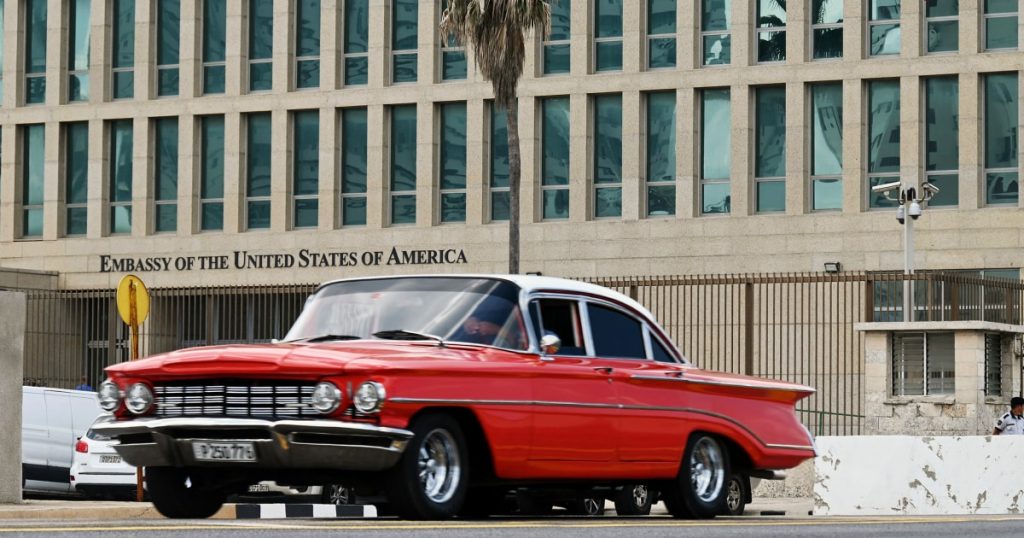The U.S. removed Cuba from a list of countries that are “not cooperating fully” in the fight against terrorism, citing the resumption of law enforcement cooperation between the two countries as a reason for the change. This decision by the Biden administration is seen as a subtle but significant step towards improving relations with Cuba, which have been strained in recent years due to Trump-era restrictions. The move comes after former President Donald Trump designated Cuba as a state sponsor of terrorism just before leaving office, leading to economic hardships on the island.
The cooperation against terrorism list is separate from the State Sponsors of Terrorism list, which is determined by different criteria. While this decision could be a prelude to a review of Cuba’s status as a state sponsor of terrorism, the State Department official clarified that any future review would be based on established laws and criteria set by Congress. Despite applauding the decision to remove Cuba from the list of non-cooperating countries, Cuban Foreign Minister Bruno Rodriguez believes that more needs to be done to rectify the situation. He called for an end to the political manipulation surrounding the issue and the unjust inclusion of Cuba on the list of countries sponsoring terrorism.
The Biden administration’s decision to remove Cuba from the list of non-cooperating countries is seen as a positive step towards rebuilding diplomatic relations between the two countries. The move acknowledges Cuba’s efforts in collaborating with the U.S. in combating terrorism, which is a significant development given the strained relationship between the two nations in recent years. The decision marks a departure from the policies of the previous administration and could signal a shift towards a more constructive approach to foreign policy in the region.
Despite the positive implications of this decision, there are still challenges ahead in terms of fully normalizing relations between the U.S. and Cuba. The designation of Cuba as a state sponsor of terrorism by the Trump administration has had a lasting impact on the island, leading to economic crises and shortages of essential goods. While the removal from the list of non-cooperating countries is a step in the right direction, more needs to be done to address the underlying issues that have strained relations between the two countries.
The Biden administration’s decision to remove Cuba from the list of countries not fully cooperating in the fight against terrorism is a significant development in the effort to improve diplomatic relations between the U.S. and Cuba. This move acknowledges Cuba’s efforts in collaborating with the U.S. on counterterrorism measures and represents a departure from the policies of the previous administration. While there are still challenges ahead in fully normalizing relations between the two countries, this decision signals a potential shift towards a more constructive approach to foreign policy in the region.
Overall, the decision to remove Cuba from the list of non-cooperating countries in the fight against terrorism is a positive step in improving relations between the U.S. and Cuba. While more work needs to be done to fully address the challenges that have strained relations between the two countries, this move signals a potential shift towards a more cooperative approach to foreign policy in the region. Despite the positive implications of this decision, there are still obstacles to overcome in fully normalizing relations between the U.S. and Cuba, particularly in addressing the economic hardships caused by the designation of Cuba as a state sponsor of terrorism.


